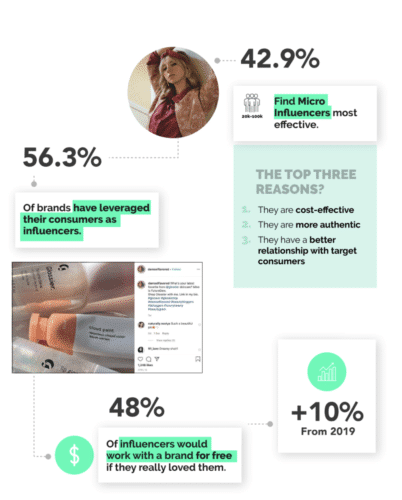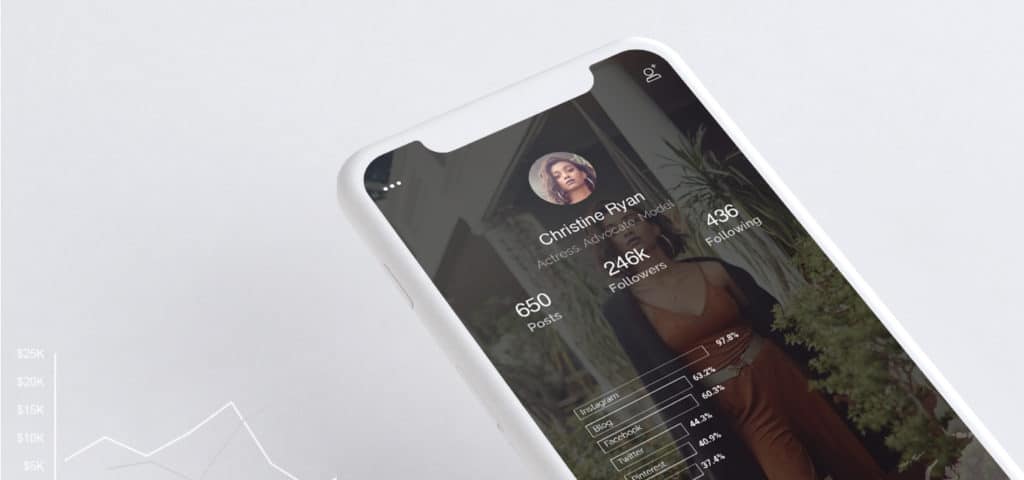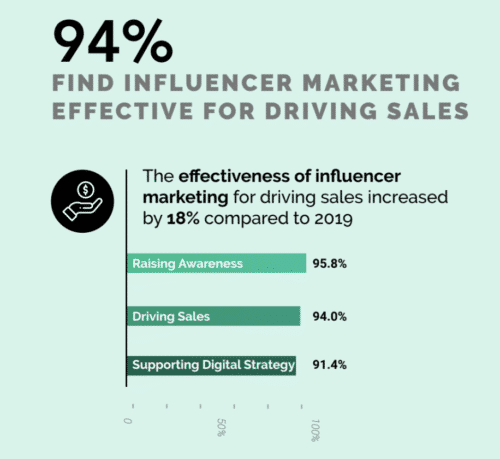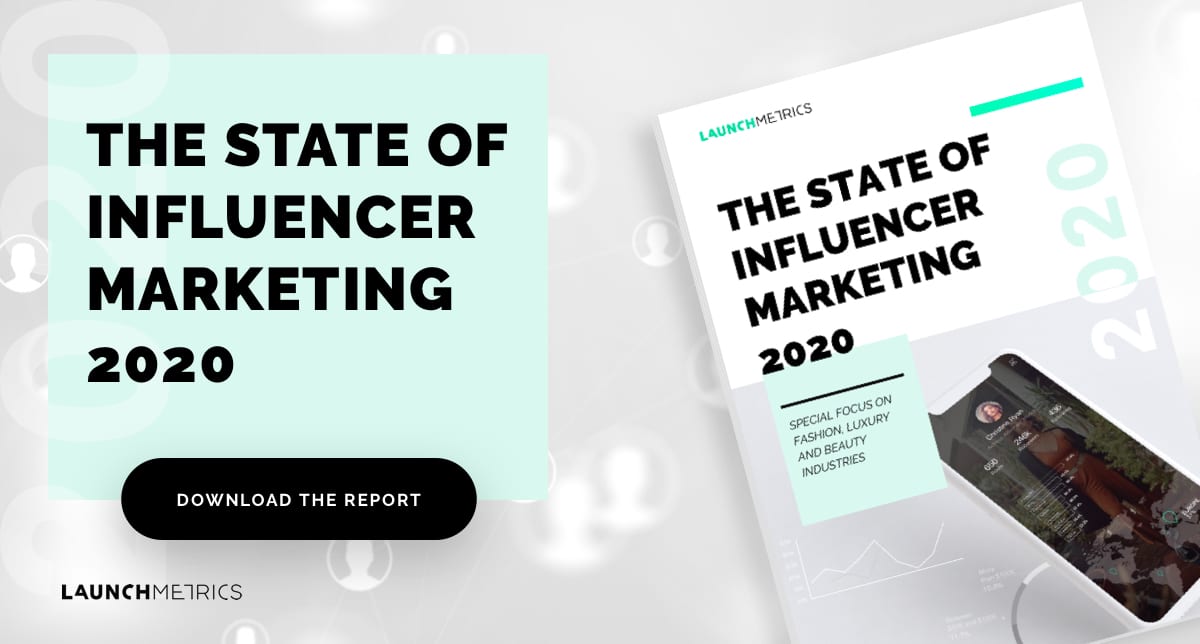The industry of influencer marketing has been thrown into uncertainty in light of Covid-19, with the scope of brand-creator partnerships shifting to become more focused on storytelling and entertainment, rather than solely product promotion. It is likely that this will change the type of content, channels, and activations we see in the future of influencer marketing, with both brands and influencers trying to speak to customers and followers on a more personal level.
This year marks the 6th annual edition of our State of Influencer Marketing Report 2020 – where we survey over 900 brands, agencies, and influencers to understand their take on influencer marketing as it stands and see what challenges and motivations impact them today. In this article, we will share some of the key stats from the report to give a better understanding of what influencer marketing looks like today and tomorrow.
94% Find Influencer Marketing Effective for Driving Sales
The influencer marketing industry has grown by such scale, that it is unsurprising that there has been an increase in the number of professionals finding influencer marketing effective for driving sales in 2020. With new platforms such as TikTok causing products to sell-out in seconds, brands are getting creative with the strategies they employ to increase sales via influencer campaigns.
However, in the past month, most campaigns have seen a shift away from product promotion based content, to education, storytelling, and social initiatives, in order to provide audiences with the right kind of entertainment in an uncertain and stressful time. It is unlikely that influencer marketing will decrease in its effectiveness for driving sales, but that it will evolve in the way creators sell and promote products for brands – via personalized experiences, content that tells a story, and more natural and honest activations.
56.3% of brands have leveraged their consumers as influencers
The likes of Glossier and Drunk Elephant have paved the way for brands utilizing their consumers as influencers, with feeds full of buyers sharing their journey with their products. Many fashions, luxury, and beauty brands have started to see the value in this and followed suit. “I think seeing Glossier, with its 2M+ followers, share posts from consumers whether they are influencers or not, shows they’re focused on the people and community. That’s not to say that influencer marketing isn’t helpful though – I think they complement each other” says Tania Syan, a Glossier customer who has been featured on the brand’s page.
Not only does it help give brands more legitimacy in terms of their products, but it also increases relatability for their customers – and social media is the perfect place to do this.
42% of brands plan to include TikTok in their influencer marketing strategies
TikTok’s gross US revenue (user spending) for the week commencing March 16 was $1.1 million – up 34% from the previous month. This increase is largely thanks to the fact that a large percentage of the global population is in full lockdown and looking to digital for entertainment. TikTok’s popularity is thanks to the platform’s ability to keep users in-app, as well as entertain them in fun ways via viral challenges. Brands are starting to see more and more opportunities on these platforms, to insert products or branding into challenge formats by collaborating with influencers or even setting their own channels for people to follow. We are likely to continue to see an uptick of brand-influencer collaborations in the coming months and years, with new faces that are native to a platform that targets Gen Z.

The face of influencer marketing will continue to grow in importance for brands, especially as they try and reach consumers in a more honest and relatable way. To read more about how influencer marketing will change, key data points, as well as see insights from some of the industries’ top influencers view our newest report: The State of Influencer Marketing 2020.


